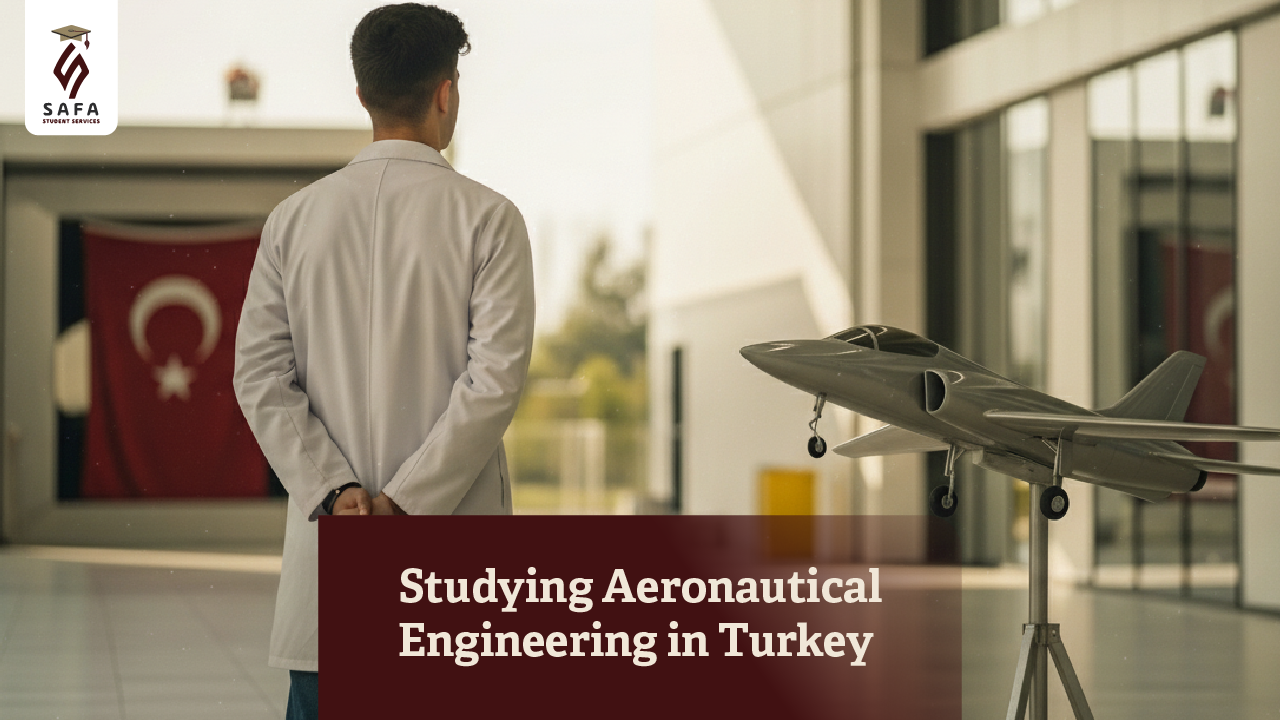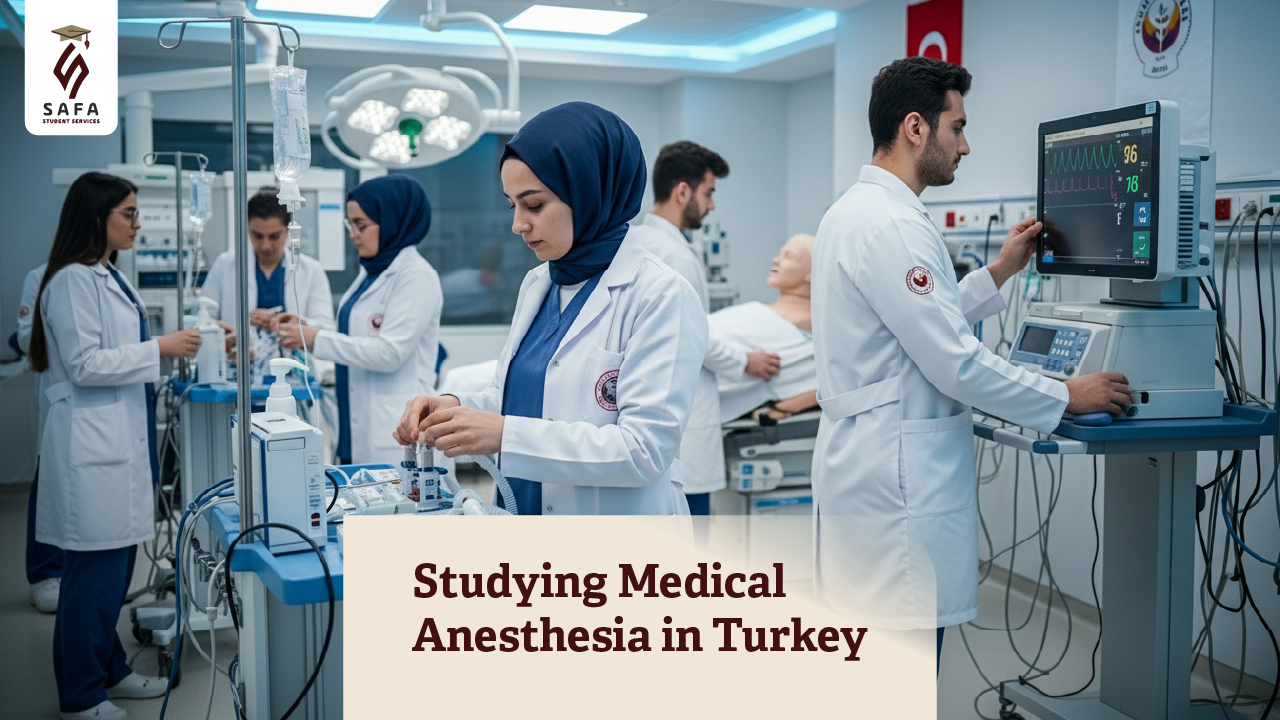5 Reasons to study at private universities in Turkey


جدول المحتويات
If you’re considering pursuing your university education abroad, especially if you want to study at private universities in Turkey, you’ve come to the right place. Turkey offers numerous advantages, making it an ideal educational destination for international students looking to study abroad after high school. In this article, we will cover everything you need to know about study at private universities in Turkey, including its benefits, application requirements, top universities, and student life. Let’s dive in!
An Overview of Turkey and Its Academic Education
The Republic of Turkey, founded in 1923 by Mustafa Kemal Atatürk, marked the end of the Ottoman Empire. Strategically located at the crossroads of Southeast Europe and Southwest Asia, Turkey is a vibrant country known for its diverse cultures, beliefs, traditions, nature, and history, all of which influence its unique way of life.
Turkey is home to numerous historical and archaeological cities alongside modern tourist and commercial hubs. The most prominent cities include Istanbul, Ankara, and Izmir, which serve as major urban centers, blending rich historical heritage with contemporary architectural designs.

When it comes to academic education, Turkey boasts over 200 universities, including public and private institutions, technical universities, language schools, and specialized institutes. These universities provide a wide range of academic disciplines, ensuring high-quality education for students. Turkish universities are equipped with state-of-the-art infrastructure, advanced classrooms, research labs, and practical training facilities such as hospitals and factories affiliated with the institutions.
Students studying in Turkey not only gain access to excellent education and practical training throughout their studies but also benefit from promising career opportunities after graduation.
You can also take a look at: Universities in Turkey and their prices
Advantages of study at private universities in Turkey
Turkey represents a distinctive educational destination for higher education and postgraduate studies, as it includes major internationally recognized universities in most countries around the world. This guarantees students an excellent academic education that prepares them for integration into the job market after graduation with a high level of competence. The following are the main advantages of study at private universities in Turkey for international students.
1- Reliable and high-quality higher education
Turkey ranks second in the world, with 94.2% of its population enrolled in various higher education institutions. It is also part of the European Higher Education Area (EHEA), which is centrally located in Turkey, making it an excellent way to encourage international students to study at private universities in Turkey without worrying about the recognition of their degree. Graduating from a recognized Turkish institution within the European Union means that the degree is accredited and internationally recognized.
Turkey is one of the most successful participants in the international student exchange program Erasmus. It also offers many student exchange programs, such as Farabi and Mevlana, through the Erasmus program. This helps students and faculty members to transfer participating universities, facilitating cultural and experiential exchange.

2- Diversity of programs
Turkey has about 206 higher education institutions and academies, where more than 8 million students from around the world study. This large number of universities provides a unique opportunity for undergraduate studies in various programs and specializations. Students who wish to study at private universities in Turkey can choose from a large number of universities that suit their budget and academic preferences. Furthermore, the diversity of programs allows flexibility in choosing from a wide range of different disciplines.
3- Rich cultural life
Turkey is home to a diverse range of cultures and civilizations and enjoys a high level of mutual respect. This makes study at private universities in Turkey a preferred choice for students who want to experience a different life alongside their studies and engage with different cultures and people. Remarkably, international students do not feel any kind of alienation or isolation during their study period, thanks to the presence of a large number of cultures and ethnicities, along with the friendly Turkish people who always welcome their guests.
4- Student Activities and Support
study at private universities in Turkey provides international students with a comprehensive educational environment that focuses on academic excellence, practical training, and student well-being. Turkish universities offer a wide range of student activities, including various student clubs, cultural events, and sports activities. They also provide healthcare services, counseling, and ongoing psychological support for students.

5- Comfortable Living Conditions
The cost of study at private universities in Turkey is reasonable and affordable compared to many other countries. As an international student, you can meet your accommodation, food, beverage, and entertainment needs at reasonable prices. You can choose to reside in on-campus student dormitories or rent housing near the university at affordable rates that you can afford.
Top Universities to study at private universities in Turkey
As mentioned earlier, Turkey is home to many prestigious universities, both public and private, making it an attractive destination for international students. Certain universities stand out for their high-quality education, advanced facilities, and reputation, which significantly enhance graduates’ career prospects worldwide. Below is a list of some of the most sought-after private universities in Turkey:
- Istanbul Medipol University
- Bahcesehir University
- Istanbul Aydin University
- Istanbul Gelisim University
- Biruni University
- Istinye University
- Altinbas University
Admission Requirements for Turkish Universities
To study at private universities in Turkey, prospective students must meet certain admission requirements. These requirements vary depending on the university and program of choice but generally include two main categories:

University Admission Requirements
- Payment of the university application fee.
- Proficiency certificate in the language.
- In the case of studying in English, passing the TOEFL or IELTS language test with a score determined by the university is required.
- In the case of studying in Turkish, passing the TOMER Turkish language test or attending a preparatory year is required.
You can Register with Safa to study at private universities in Turkey now and get your acceptance easily. Safa your Friendly Companion in your Education 🎓 WhatsApp
Required Documents
To register at any Turkish universities, there are several documents required, and the student must submit these files and documents before sending the university application. It is sufficient to send them in PDF or JPG format during the initial registration stage for the student to obtain provisional acceptance at the university. These documents may vary depending on the undergraduate or graduate level, but there are some documents that are common to both stages. The following are the necessary documents for application:
For undergraduate and institute students
- Valid passport.
- Recent passport-sized photo (white background).
- Copy of high school diploma.
- Student’s email address.

For graduate students
- Bachelor’s degree certificate for graduate students.
- Translated copy of the transcript in English or Turkish.
- Receipt of payment for the application fee.
- Recommendation letters (Master’s, Ph.D.).
Life in Turkey for Int-Students
Every year, Turkey attracts thousands of international students seeking academic and practical opportunities in a peaceful and stable environment. study at private universities in Turkey offers not only high-quality education but also an enriching lifestyle. Below, we explore various aspects of life in Turkey for international students.
1) Accommodation Options
Turkey provides diverse housing options for students, including university dormitories and government student housing. These accommodations are equipped with essential facilities such as bedrooms, living areas, kitchens, study rooms, and recreational amenities, including swimming pools, gyms, and cafeterias, ensuring a comfortable stay for students.
For those seeking alternatives, private housing is also available, ranging from luxurious apartments to smaller shared accommodations, allowing students to find options that suit their budget and preferences.

2) Social and Cultural Life
Beyond academics, Turkey offers vibrant cultural and social experiences, particularly in major cities like Istanbul, Ankara, and Izmir. Students can immerse themselves in a variety of activities, from international film and music festivals to art exhibitions and fashion events. The country’s dynamic cultural scene ensures students enjoy a well-rounded experience while study at private universities in Turkey.
3) Transportation
There is no need to worry about transportation, getting around in Turkey is convenient and affordable, thanks to the extensive transportation network. Students can utilize metros, buses, trams, railways, and even ferries in major cities. Additionally, discounted fares for students make transportation even more accessible, reducing overall living expenses during their studies.
4) Training and Work Opportunities
Students in Turkey benefit from numerous internship opportunities provided by multinational companies and organizations across various fields. Many universities also collaborate with private institutions to offer internship programs and part-time job opportunities, allowing students to gain valuable work experience while studying.
5) Healthcare Services
International students in Turkey are covered under the General Health Insurance system provided by the Turkish government. This coverage allows them to access medical services at public and private hospitals with minimal additional costs, ensuring their health and well-being throughout their academic journey.
Quality of Higher Education in Turkey
One of the key factors contributing to the high quality of higher education in Turkey is the accreditation provided by the Turkish Higher Education Council (YÖK) and other accreditation bodies. These organizations ensure that universities comply with global academic standards, making Turkish universities a competitive choice for international students. Agencies like YÖDAK monitor and enhance educational quality, ensuring that Turkish universities employ internationally recognized academics and uphold their reputation in the academic community. This makes study at private universities in Turkey an attractive option for thousands of international students.
Turkish universities invest heavily in modern infrastructure that aligns with technological advancements, ensuring students have access to state-of-the-art facilities. Many universities offer a wide range of programs in English, making higher education in Turkey accessible to students from around the world. Additionally, scholarship opportunities are available, making it easier for students to pursue their academic goals.
Universities also offer comprehensive support services, providing assistance in academics, career planning, and personal development. Academic freedom is promoted, ensuring students have a high-quality educational experience that fosters creativity and innovation.
Is it available to study at private Turkish universities for Saudi students?
Of course, it is available for Saudi students to study at private Turkish universities, as we mentioned, Turkey is an attractive educational destination for international students, including Saudis, as private universities in Turkey provide high-quality and internationally recognized education, making it an ideal option for Saudi students wishing to complete their university education abroad.
You can also read more about: 9 Things You Should Know Before Studying in Turkey
In conclusion, if you dream of starting your academic journey and achieving your career ambitions, study at private universities in Turkey is the first step toward a future filled with academic and professional opportunities. With a combination of high-quality education, diverse culture, and affordable living costs, Turkey offers an ideal environment for international students.
At Safa, we are here to guide you every step of the way helping you choose the right university, assisting with your application, and supporting you through the relocation process. Let us make your educational journey smoother and more successful. Contact us now to begin your path to study at private universities in Turkey!
Latest News
Related Articles & News
Follow our latest articles

Studying Mechanical Engineering in Turkey 2025: A Pillar of Industry and Innovation
In our modern world, from the engines of the cars that drive us daily to giant electricity-generating turbines and precision...
See More
Studying Artificial Intelligence Engineering in Turkey 2025: Towards a Future Led by Intelligent Machines
In a world experiencing an unprecedented technological revolution, Artificial Intelligence (AI) has become the driving force behind innovation in almost...
See More
Studying Dentistry in Turkey 2025: A Bright Smile for a Promising Future
In a world where health and beauty are increasingly important, dentistry is a medical profession that combines scientific precision with...
See More
Studying Aeronautical Engineering in Turkey 2025: Soar into the skies of innovation
Imagine yourself as part of a team designing the aircraft of the future, a cutting-edge space system, or developing technologies...
See More
Studying Biomedical Engineering in Türkiye 2025: A bridge linking engineering and health
In an era of rapid medical advancement, cutting-edge medical equipment has become the backbone of modern healthcare, from precision diagnostic...
See More
Studying Anesthesiology in Turkey 2025: A vital profession at the heart of healthcare
In every surgical procedure, and in many complex medical operations, the anesthesiologist plays a pivotal role, no less important than...
See More

